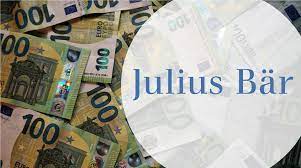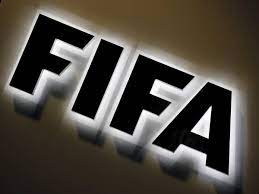Julius Baer Bank Resolves Money Laundering Charges in FIFA Scandal and Pays Nearly $80 Million

The Justice Department continues to pile up victories out of the world soccer FIFA federation bribery scandal. Julius Baer Group, the Swiss banker, agreed to a three-year, deferred prosecution agreement (DPA) and to pay nearly $80 million to resolve money laundering charges.
Julius Baer laundered approximately $36 million in bribes between February 2013 and May 2015 in which sports marketing companies bribed soccer officials for broadcast rights to soccer matches.
Under the DPA, Baer agreed to pay $43 million in criminal fines and slightly more than $36 million in forfeiture.
Julius Baer cooperated with the DOJ prosecution. More than two dozen individuals have pleaded guilty in the case, and two individuals were convicted at trial.
Jorge Arzuaga, a former Julius Baer banker, pleaded guilty in 2017 in relation to the bribery scheme. Arzuga assisted an Argentina-based marketing company to launder millions of dollars in bribes to FIFA officials to help the marketing company secure the rights to soccer tournaments. Arzuaga was sentenced to three years’ probation.
Julius Baer, through Arzuaga, conspired with sports marketing executives, including Alejandro Burzaco, from Torneos y Competencias S.A. (Torneos), a sports media company based in Argentina, to launder $36 million in bribes to soccer officials in exchange for broadcasting rights to soccer matches.
Julius Baer executed these illegal transactions through the accounts to conceal the true nature of the payments and promote the fraud. Burzaco pleaded guilty to racketeering conspiracy in 2015.

As an example, Burzaco and co-conspirators agreed to pay almost $30 million to the senior vice president of FIFA for his support in the award of regional broadcasting rights to the 2018, 2022, 2026 and 2030 World Cup tounaments. Julius Baer moved approximately $25 million into a sub-account at the bank and held it there for the benefit of the senior FIFA official.
Torneos and his co-conspirators also paid tens of millions of dollars in bribes to several officials who CONMEBOL for the rights to the Copa America tournament. The officials who were bribed included Eugenio Figueredo, a member of FIFA’s executive committee, Marco Polo Del Nero, another member of the FIFA executive committee; and Jose Maria Marin, a member of multiple FIFA standing committees.
Burzaco and Torneos also paid bribes through Julius Baer to numerous CONMEBOL officials to obtain broadcasting rights to the Copa Libertadores tournament.
Julius Baer’s AML controls were deficient and failed to detect or prevent numerous money laundering transactions connected to the bribery scheme. DOJ cited various missed red flags that were presented from the transactions, including inadequate due diligence, transaction alerts, facially false contracts, payments to third parties at the direction of a FIFA official, and services allegedly provided by shell companies.

Julius Baer officials and employees knew that Arzuaga’s client accounts were linked to international soccer, which involve high corruption risks. A Julius Baer executive directed the opening of the accounts on a fast track to ensure the bank would land this lucrative business.
Under DOJ’s Corporate Enforcement Policy, Julius Baer failed to voluntarily disclose the conduct, and did not receive any cooperation credit because it made various misleading representations to the Justice Department. Julius Baer also failed to provide DOJ with all evidence relating to senior management involvement in the bribery and money laundering scheme. DOJ awarded Julius Baer a 5 percent reduction in the fine in recognition of Julius Baer’s significant enhancements to its corporate compliance program.















